The result? Sketches that are more vibrant, dynamic, and fun!
Designer, urban sketcher, and author of The Urban Sketching Handbook: Sketch Now, Think Later, Mike Daikubara is your guide to this exciting method in The Urban Sketching Handbook: Color First, Ink Later:
- Start with a detailed overview of the process, from optional light pencil sketch to finishing touches
- Follow along several step-by-step demonstrations that apply the approach to a range of subjects, from still life to figures to architecture
- Get inspired by an extensive gallery of on-location sketches
You’ll learn how to let watercolor do the hard work of urban sketching and enjoy the spontaneous effects and delightful surprises you’ll see in your artwork.
The Urban Sketching Handbooks series offers location artists expert instruction on creative techniques, on-location tips and advice, and an abundance of visual inspiration. These handy references come in a compact, easy-to-carry format—perfect to toss in your backpack or artist’s tote.
Also available from the Urban Sketching Handbooks series: Understanding Light; Panoramas and Vertical Vistas; Drawing Expressive People; Techniques for Beginners; Complete Urban Sketching Companion; Drawing with a Tablet; 101 Sketching Tips; Working with Color; Sketch Now, Think Later; Understanding Perspective; People and Motion; and Architecture and Cityscapes.
Read more
148 reviews for The Urban Sketching Handbook Color First, Ink Later: A Dynamic Approach to Drawing and Painting on Location (Volume 15) (Urban Sketching Handbooks, 15)
Add a review
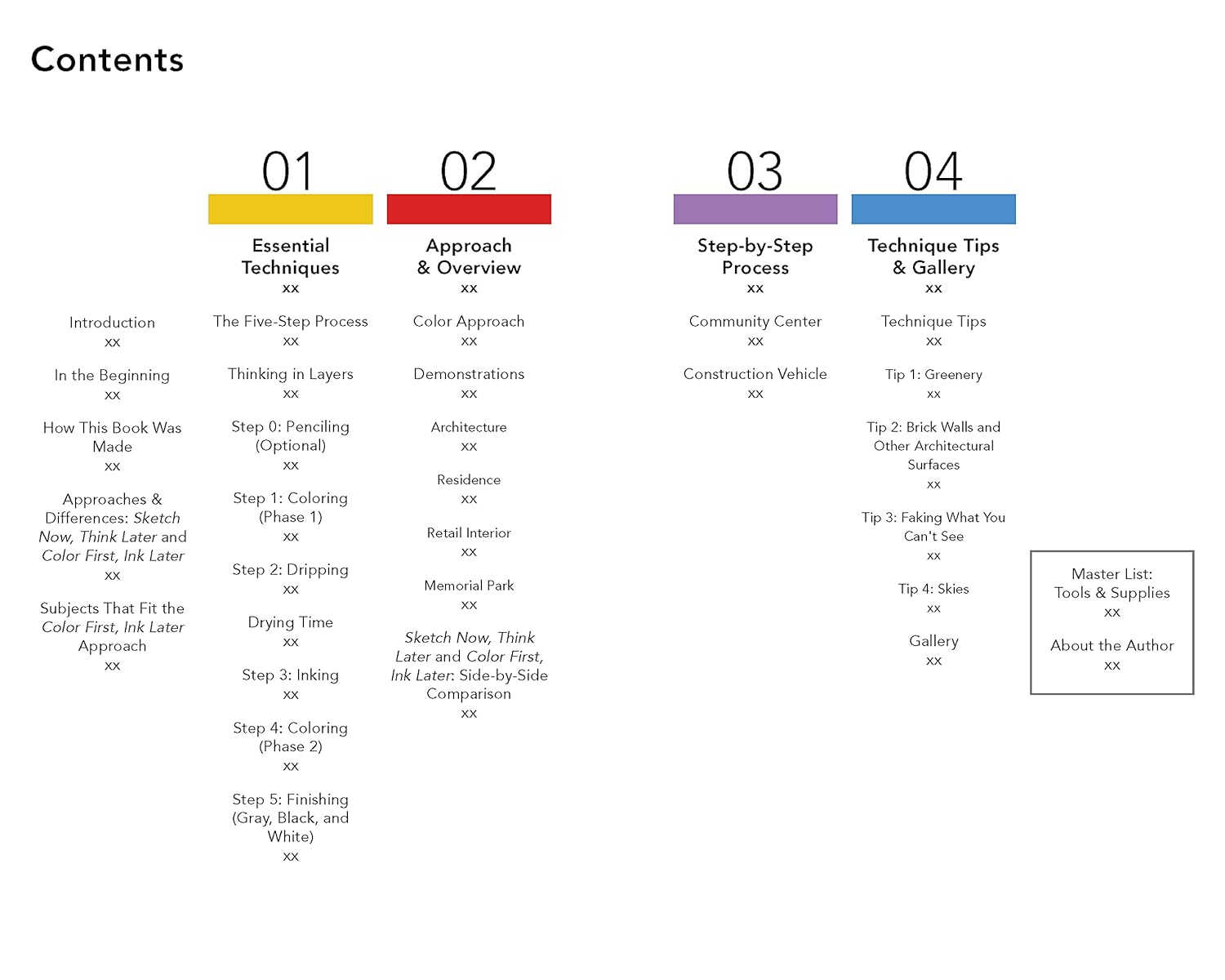
Original price was: $19.99.$16.24Current price is: $16.24.

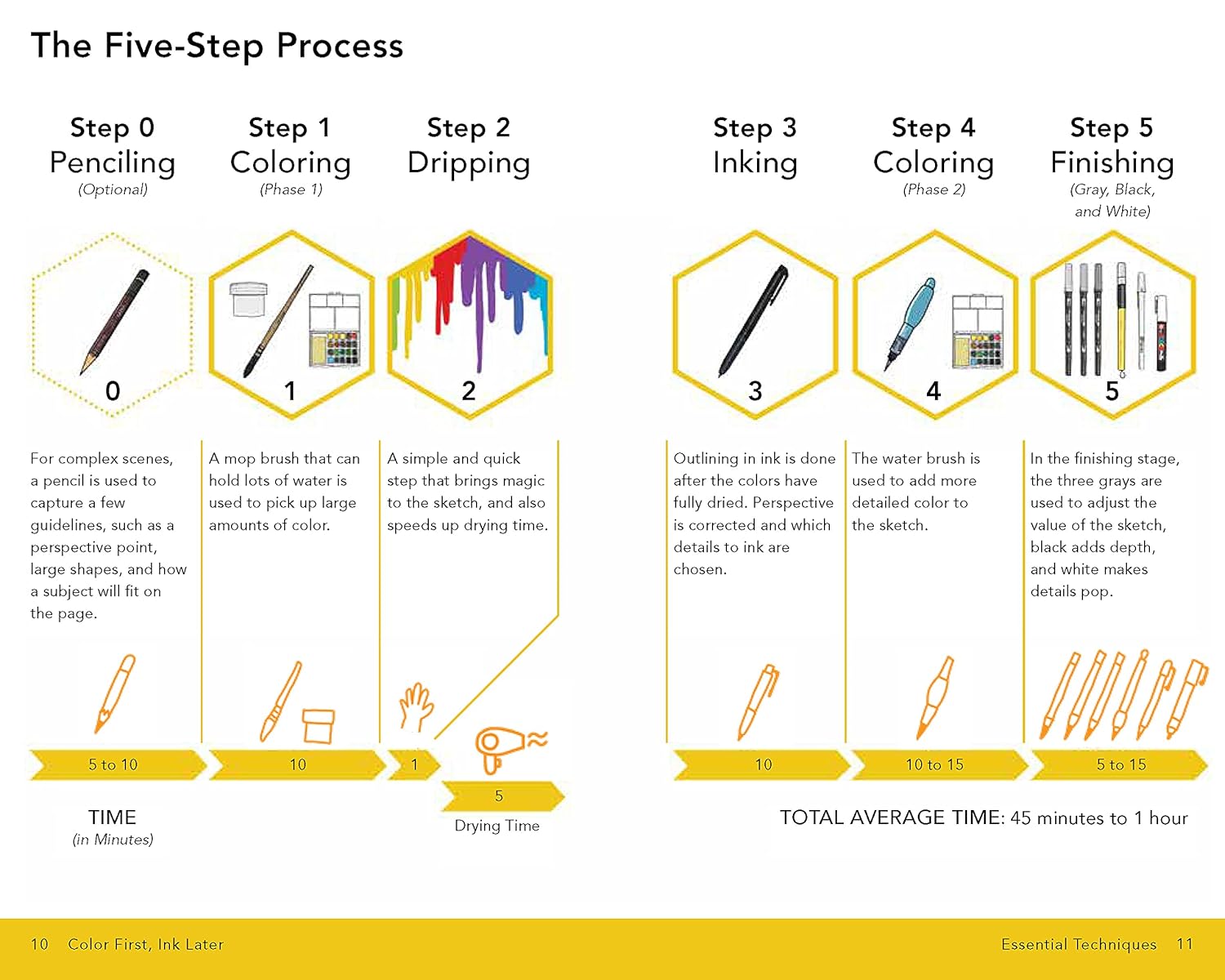
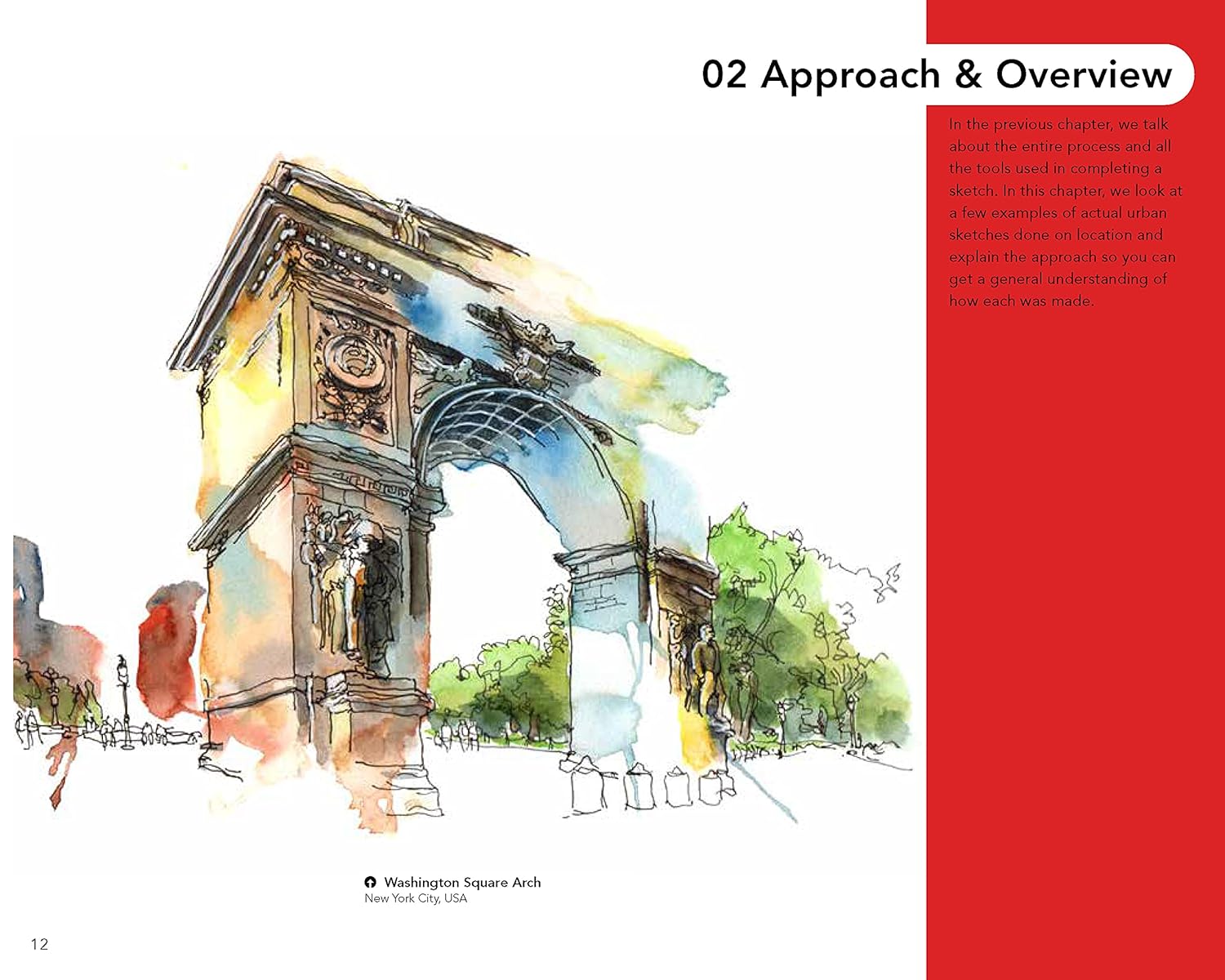
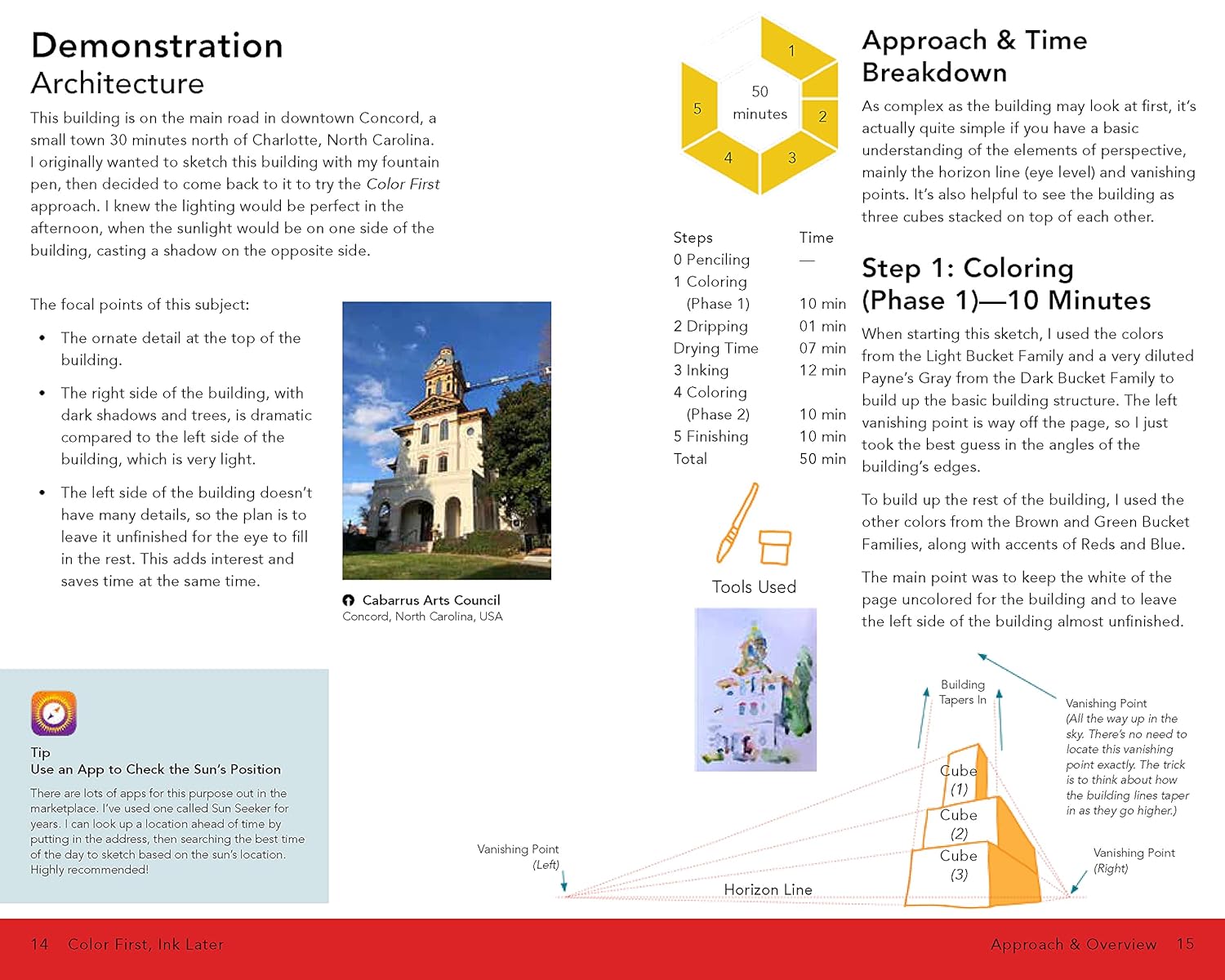
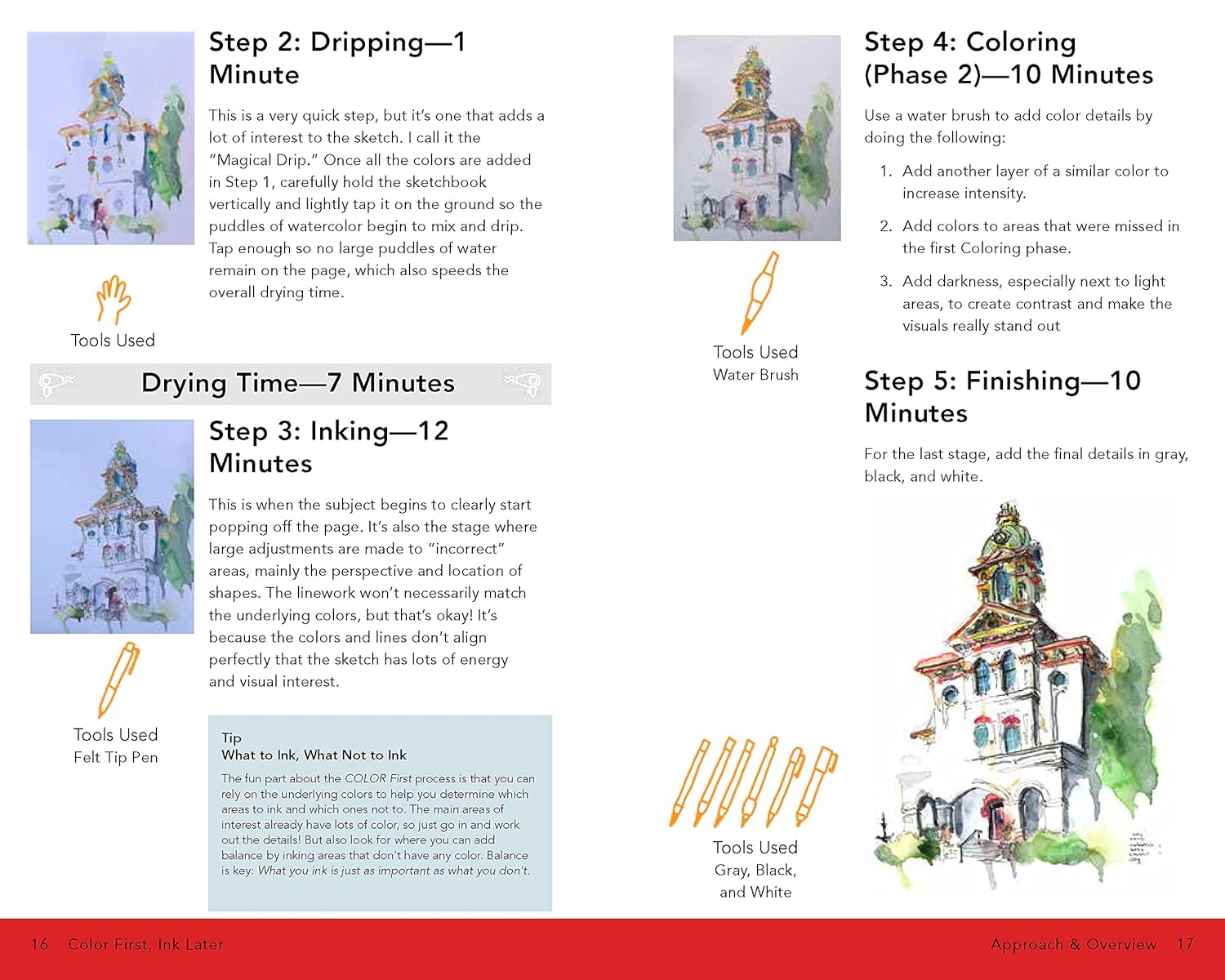
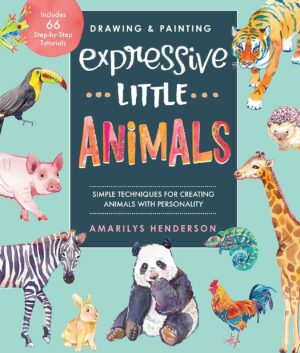
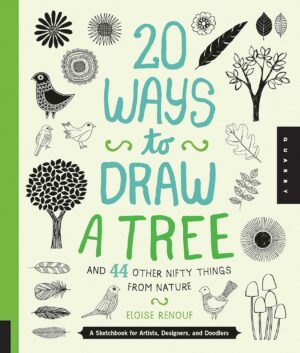
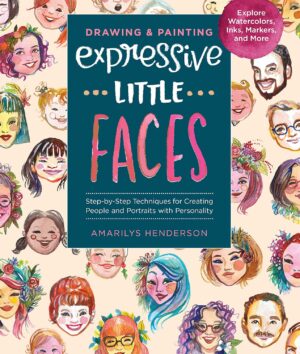
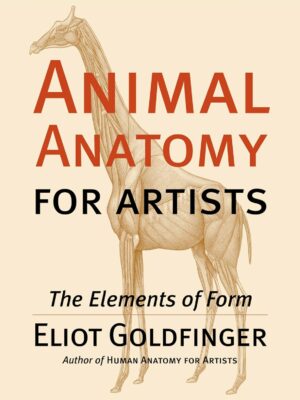

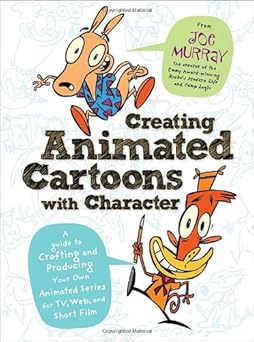

Patricia R. Kline –
I received this book today. The cover of the book is a nice satin flexible cover. Unfortunately the black elastic was only affixed on the top and not the bottom. This is why I took off one star. The type and color is clear, crisp. The binding on the book is great. The book is color tabs on the bottom helps you get to where you left off fast. The paper is nice and it also lays flat once broken in.
It has a lot of tips. I’m more of a charcoal and pencil kinda a woman. I have been experimenting with water color over the last 10 years. So I was looking for a book to give me some tips on adding water colors to my sketches. This book delivered and then some. It’s a very complete book. I have already ordered the other books in the set. the instructions are clear and have
Jonathan –
Es un manual altamente recomendable. Contiene consejos sobre materiales, sobre teoría del color, y hay muchos dibujos mostrados paso a paso. Que es la forma de enseñar a alguien cómo hacer algo.
Considero que “Color First. Ink later” es la evolución o una versión mejor meditada de “Dibuja primero, piensa después”.
La verdad es que Mike es muy simpático y los textos son muy agradables.
Ed Humphreys –
Great!
Marilia –
Dieses Buch hat meine Art zu skizzieren völlig verändert! „The Urban Sketching Handbook: Color First, Ink Later“ inspiriert dazu, mutiger mit Farben umzugehen und sich von starren Linien zu lösen.
Die Idee, erst mit Aquarellfarben Stimmungen und Formen zu erschaffen und dann mit Tinte Details hinzuzufügen, gibt den Zeichnungen eine wunderbare Leichtigkeit und Spontaneität.
Die Anleitungen sind praxisnah, voller wertvoller Tipps und wunderschöner Beispiele, die sofort Lust machen, selbst den Pinsel in die Hand zu nehmen. Egal, ob man Anfänger oder erfahrener Urban Sketcher ist – dieses Buch weckt die Freude am Experimentieren und lässt einen die Welt mit neuen Augen sehen. Absolute Empfehlung für alle, die ihre Kreativität entfesseln wollen! 🎨✨
Tina K. –
Four years ago, Mike Daikubara put out Sketch Now, Think Later: Jumping Right into Sketching with Limited Time, Tools, and Techniques, a popular volume in the Urban Sketching Handbook series. Now the Charlotte, North Carolina, sketcher has published a sequel: Color First, Ink Later: A Dynamic Approach to Drawing and Painting on Location.
While the first volume has a strong emphasis on Mike’s philosophy and approach toward urban sketching – the why in addition to the how – Color First, Ink Later is intended as a follow-up that dives directly into the how. Novices who are new to urban sketching would probably want to start with Sketch Now first to fully understand the principles behind his “color first” approach.
Although his approach is different, his philosophy remains the same: Mike is always looking for ways to sketch whatever he wants by choosing the tools and methods that best accommodate the available time or circumstance. His watercolor-first method, which takes a bit longer, is more conducive to stationary, outdoor subjects than the line-first method, which he prefers for rapidly changing scenes or when he is sketching restaurant meals (while his hungry and ever-patient wife waits). Since I have developed my own varying sketching approaches based on similar variables, I appreciate how thoroughly and clearly Mike has analyzed his processes to present them in this book.
After a detailed explanation of his five-step approach, the book presents several demonstrations based on subject matter or complexity. Using still images taken from videos he made while completing the demo sketches, he was able to show various stages of his process without having to interrupt his flow by stopping to take photos. In addition, his use of video enabled him to document exactly how long each step took. I’m not sure I’ve ever seen an urban sketching book that analyzed a process minute by minute! He’s remarkably consistent from demo to demo, regardless of subject matter – a sure sign of an experienced urban sketcher.
Since the “color” part of his color-first approach is watercolor, one section is devoted to describing his “color bucket families,” which he uses to organize his 20-color palette. This color strategy and arrangement enable him to choose colors efficiently. Rarely mixing on the palette, Mike prefers to let watercolors mix dynamically on the page. This choice not only creates more lively hues and avoids mud; it also saves him the time of trying to achieve the right hue on the palette.
Another watercolor step has both a practical purpose and a “magical” result: After the initial wash of color is applied, he allows the excess water to drip down the page, becoming a dynamic part of the composition. These unpredictable drips, which have become Mike’s signature, also have the benefit of making the wet paper dry more quickly for succeeding steps.
Every step he takes is economical and efficient without sacrificing artistic expression. When faced with a busy, cluttered foreground, Mike suggests simply skipping areas “that may be too complex or just not fun to sketch. Stay focused on why you wanted to sketch the subject in the first place.” Excellent advice for simplifying a scene!
Consistent with the Urban Sketching Handbook series format, the final section is devoted to a gallery of Mike’s spectacular work made with the color-first-ink-later approach.
Color First, Ink Later is another winner in the series. I recommend it to sketchers who have already read and used Mike’s first book and have some urban sketching experience under their belts.
One more thing: This volume in the Urban Sketching Handbook series is an improvement in regard to a gripe I have had about most of the previous books. The typeface is slightly darker and, in some areas, larger, making the text much easier for these aging eyes to read.
Ale –
So many art help books have useless advice or limited help. This book breaks down the differences and helps show the process really well. I have a few in this series and this one helps a lot with your art
Jim Clenney –
It’s a good book! I like learning new techniques and it’s also helped me loosen up my watercolors. It really helps especially when painting outdoors on a trail or urban sketching. I’m working lot’s faster now, after reading this book. It’s different, but using your own style with his technique works really well.
Hochh130 –
Explains in detail how to accent the main focal points and when to leave areas less defined. Very informative and detailed information given
Suzanne Tractenberg –
Mr. Daikubara does a good job of explaining his process of WC first followed with the sketch lines. And the examples in the last part showing the steps from photo to finished sketch are good. The problem I have with all of these books is the difficulty to actually show the paint process in print. It’s a start, and helpful. I would recommend purchasing the book.
Patricia –
Book was in like new condition as described & it arrived when promised.
Ale –
Recien lo abrí y el cordón ya estaba roto, también las esquinas estaban dobladas.
Actualizare la reseña cuando haya terminado el libro, pero lo poco que he visto me encanta, es el segundo libro que compro de este autor y me encanta que aparte del contenido técnico también comparte su experiencia personales y algunos trucos.
S. Mcquillin –
Really enjoyed this book and, despite having the other urban sketchers books, this one actually taught me something new. It provides detailed examples step by step approaches to finishing paintings using the titles approach. Very fun and highly recommended for beginners and experts alike.
Sergio L. –
Série e livro fundamentais na estante de um urban sketcher